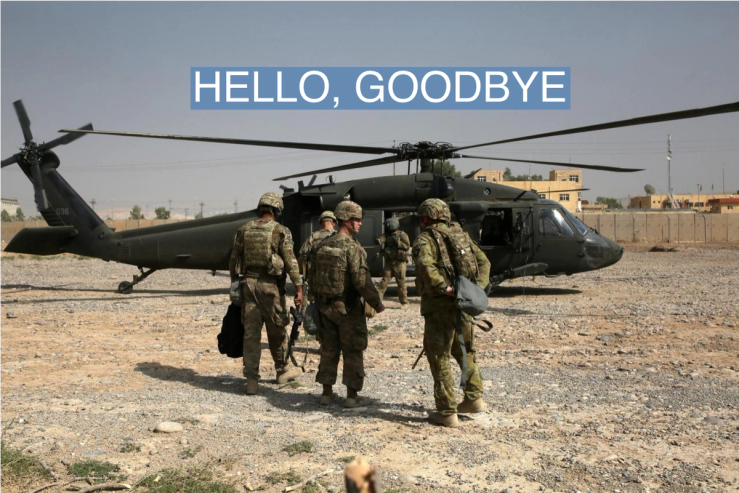The News
The U.S. will meet with the Iraqi government over the coming days to discuss the future of U.S. troops in Iraq, Defense Secretary Lloyd Austin said on Thursday. The talks will reportedly focus on a timeline for the withdrawal of the U.S.-led coalition in Iraq, which the Iraqi Prime Minister Mohammed Shia al-Sudani and other top Iraqi officials have publicly demanded.
The U.S. has 2,500 troops in Iraq, whose mission has been to train and advise Iraqi security forces to prevent a potential Islamic State resurgence. But U.S. forces in Iraq and neighboring Syria have come under increasing pressure since the start of the Israel-Hamas war, with militias launching over 150 rocket and drone attacks at U.S. bases since Oct. 7 last year.
Meanwhile, reports are swirling that the administration is also considering pulling troops out of Syria, where U.S forces have been deployed since 2015. Four administration sources told Foreign Policy that there is little U.S. appetite for maintaining a presence in Syria, and U.S. foreign policy experts have said they have had discussions with officials about a withdrawal, even as the administration has denied that this is being considered. Five U.S. officials told Politico that a U.S. withdrawal is not imminent, but that discussions are ongoing about where American forces are most needed in the Middle East.
SIGNALS
US reconsiders Syria and Iraq policy as Middle East is back on Biden’s agenda
One plan that is reportedly being floated in Washington for Syria is for the United States’ Kurdish allies to partner with the Syrian Assad regime in the campaign against the Islamic State, Al-Monitor reported. The Kurdish-led Syrian Democratic Forces called the plan “unviable given the state of our relations with the Assad regime.” The idea came up as part of a wider review of the United States’ Syria policy that is currently underway at the State Department, the publication reported. The fact that the U.S. might be reconsidering its approach to Syria reflects the extent to which Hamas’ Oct. 7 attack has forced the Middle East back on the Biden administration’s political agenda: When one journalist asked a U.S. diplomat about Biden’s Syria policy in 2022, he was met with laughter from the official, who described his job as keeping “the Middle East off Biden’s desk.”
Opinions are divided about whether the Islamic State could mount a revival
While the Islamic State lost its last territorial foothold in 2019, concerns remain about the group’s ability to mount a resurgence. Pulling U.S. forces out of Syria would be a “gift to the Islamic State,” Charles Lister of the Middle East Institute said. Of particular concern are the 10,000 IS detainees — an “ISIS army in waiting” according to the U.S. military — who the Kurdish forces hold in overcrowded facilities. On Jan. 16, an Islamic State rocket attack was launched on a prison holding up to 5,000 IS prisoners, triggering an unsuccessful jailbreak attempt. But others are more skeptical about whether the Islamic State remains a threat worth worrying about. Why is it in “the U.S. interest to stay in place, duck militia rocket fire every few days, and continue to pretend that the counter-ISIS mission isn’t over,” foreign policy expert Daniel DePetris wrote on X.
Experts fear a Syria withdrawal could have echoes of Afghanistan
If the administration decided to pull out of Syria, several experts said they doubt it would happen before the U.S. presidential election. “A withdrawal would be too messy and stir up many of the criticisms of the Biden administration that followed the Afghanistan withdrawal,” Joshua Landis, director of the Centre of Middle East Studies at the University of Oklahoma, said. Even if the withdrawal was handled better than in Afghanistan, “it would trigger chaos and a swift surge in terror threats,” Charles Lister wrote in Foreign Policy.



